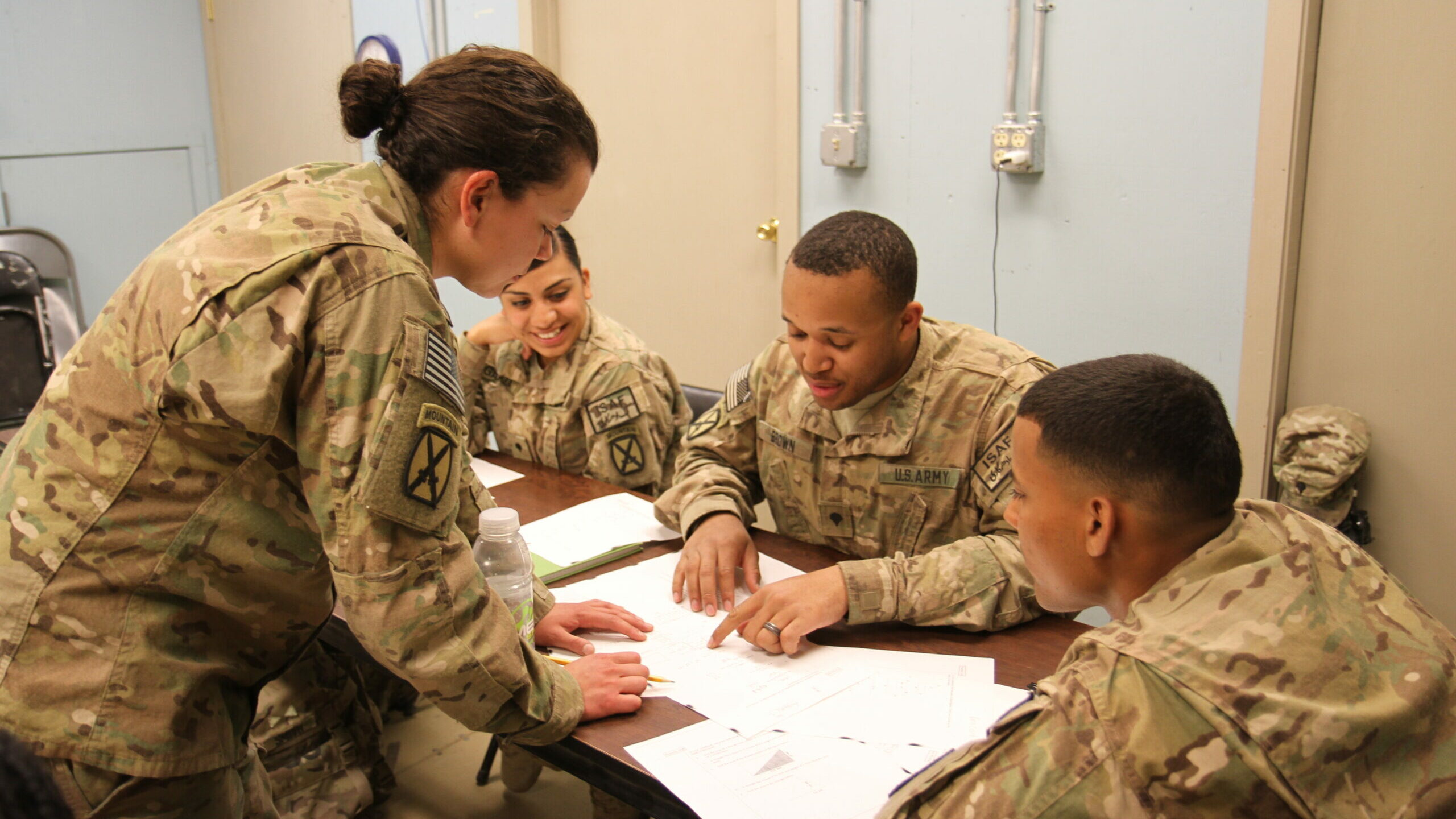

Two months after the Army recognized a breakdown in its tuition assistance program, many soldiers are saying that little progress has been made in helping them pay for classes and complete their educational goals.
The Army Tuition Assistance program is meant to help pay for “voluntary off-duty civilian education programs,” and is available to all soldiers. But according to Military Times, the service ran into an issue when it was switching from a system called GoArmyEd to a new platform known as ArmyIgnitED.
Maj. Ashley Bain, a spokeswoman for Army University, said in an email on Tuesday that ArmyIgnitED was expected to go live on March 8, but “problems with the transfer of many years of legacy data … prevented that launch.”
Sgt. Maj. of the Army Michael Grinston also addressed the issue on Twitter in April, saying the Army is “doing everything we can to get the system back online.”
He urged soldiers to “continue to be patient as we expect to have the technical [issues] with the program resolved within the next couple of weeks.” Bain told Military Times that the goal was to have the new system up and running “in time for soldiers to enroll in May classes.”
Now it’s June, and many soldiers are still running into problems trying to determine how the Army will pay for their classes and how they’re supposed to continue their education. It’s unclear exactly how many soldiers are being impacted by the ArmyIgnitED issues, but the system’s website says there are over 100,000 soldiers enrolled in the program.
A May 3 Facebook post from ArmyIgnitED has over 200 comments from people asking for help, clarification, updates, or generally sharing their frustrations about the program.
“I never thought I would potentially end up in education debt in the Army,” said one man who claimed he could owe over $1,500 for his courses. “I [might] as well have left years ago.”
Another man said he completed his degree on May 12 and has paid his portion of the tuition, but the Army hasn’t paid for two classes under the ArmyIgnitED system. His diploma is being “held up because the payment has not been made,” he said.
A month ago, someone else commented that he’d finished two classes two weeks prior and his school was still waiting for payment from the Army.
“I registered for those classes on GoArmyEd 11 weeks ago, and still no payment,” the person said. They commented again on Monday that in the month since their original comment, “nothing has happened.”
A lengthy post on the Army Reddit community said there are “classes going back to December that aren’t being paid,” and soldiers are running into problems not being able to register for courses, and are receiving bills from the school. Bain said on Tuesday that soldiers “should not be incurring tuition costs,” pointing to the Army’s exception to policy — essentially an “IOU” for colleges and universities.
A post on Facebook from Fort Riley Educational Services said the exception to policy is a place-holder of sorts for the course’s tuition, and “is in place so when the system is up, soldiers will be able to submit a waiver request for [tuition assistance] to cover those courses.”
But the Army will “not reimburse soldiers directly” after they submit a waiver request, the Army IgnitED Facebook page said, and instead will “pay schools that invoice the Army … and the school will refund the soldier in accordance to their refund policy.”
Bain confirmed on Tuesday that the exception to policy allows soldiers to enroll in classes directly through their school, and the schools would then bill the Army for those classes. She said the process has been in place except for eight days in April during which it was suspended “to acquire some visibility with enrollments.”
“We know it’s working because over 81K Soldiers have enrolled in over 255,500 classes this fiscal year,” Bain said. “The Soldiers who are experiencing issues should reach out to their assigned Education Center/Office.”
But the Reddit post said that in these cases, “soldiers are the ones on the hook, on paper, for these courses. It’s no surprise there is hesitancy to believe the Army totally will have their back on this one.”
Bain said it’s likely that the tuition program won’t be fully functional — as in, able to operate without the exception to policy in place — until early in the fourth quarter of this fiscal year, which begins on July 1. But the longer the issue persists the more soldiers believe they are being screwed, leading to some taking issue with the Army’s “People First” strategy, saying the breakdown in tuition assistance undercuts the service’s dedication to helping soldiers.
“I will tweet at every single commander who uses the hashtag #peoplefirst,” one person said on Reddit. “Every. Single. One.”
Featured photo: U.S. Army 2nd Lt. Ashley Murray, (left) a volunteer instructor assigned to 210 Brigade Support Battalion, 2/10 Security Forces Assistance Brigade, Forward Operating Base Sharana, Afghanistan, explains an arithmetic problem to soldiers attending the Functional Academic Skills and General Technical improvement class held at the FOB Sharana education center, April 12, 2013. (Photo by U.S. Army Sgt. Mark A. Moore II – 2/10 Security Forces Assistance Brigade)
Correction: This story previously said the tuition assistance program would not be fully functional until the fourth quarter of the year, beginning on Oct. 1. It has been corrected to show that Maj. Ashley Bain said it would not be functional until the fourth quarter of the fiscal year, beginning on July 1.
